Disclosure: Meeple Mountain received a free copy of this product in exchange for an honest, unbiased review. This review is not intended to be an endorsement.
“Modern” board gaming has been around for around 20-30 years now. Popularized by the runaway success of games like Catan (published in 1995), Carcassonne (2000), and Ticket to Ride (2004), a wave of games from primarily German and European designers would soon make their ways around the world. That first wave of board games helped coin the term “eurogame” because they were largely conflict free, used abstract components (wooden cubes could represent any number of different things), and required more thinking and strategy than games like Trivial Pursuit, Scattergories, or Pictionary. And even though modern board games have continued to evolve, occasionally you find a game that has the feel of those classics, and it’s refreshing to see.
Let me introduce you to Spy Connection.
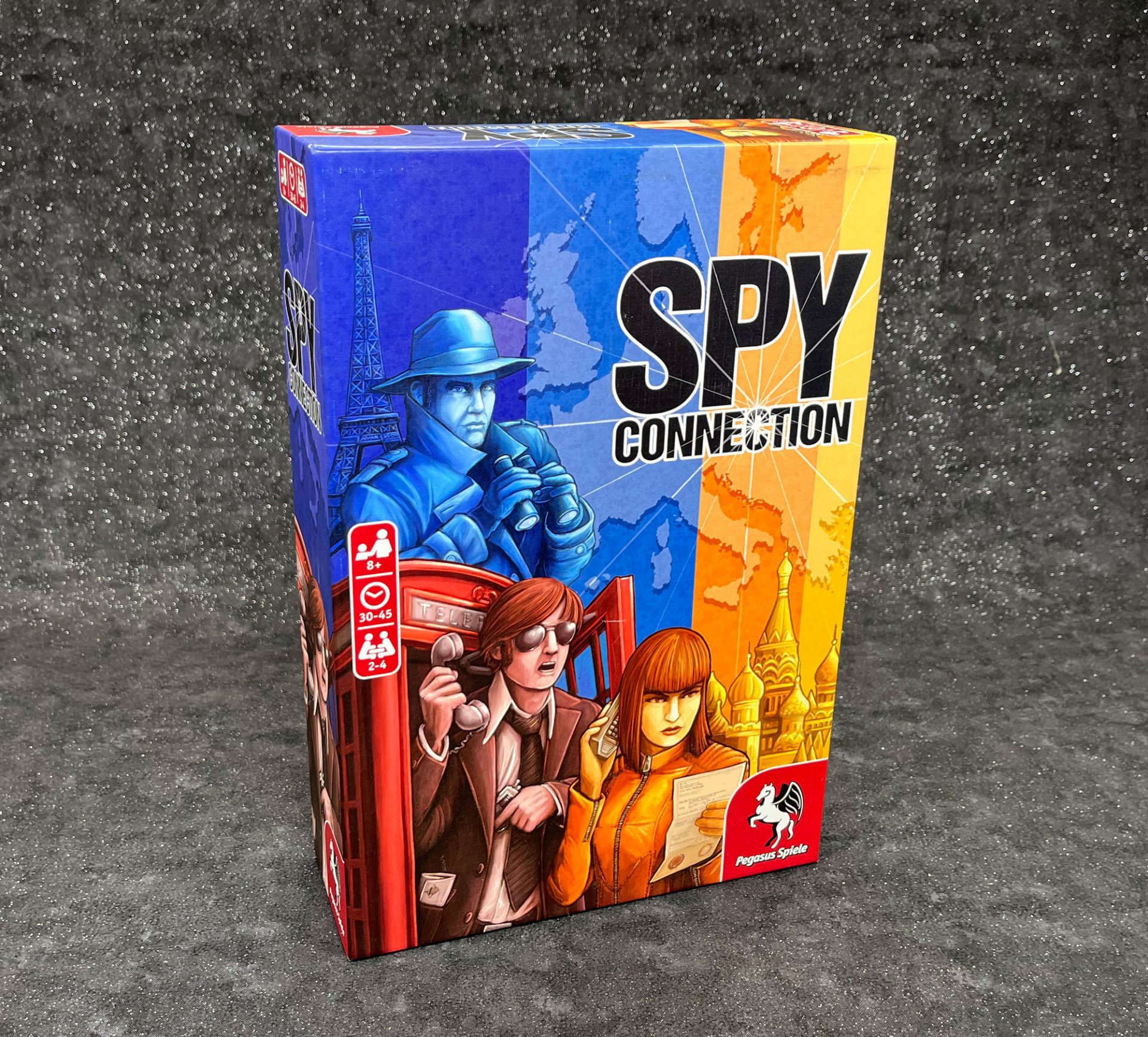
Spy Connection Overview
In Spy Connection you act as a spymaster, spreading your influence far and wide by creating a string of secure connections across Europe, Russia, and the UK. Travel to different cities, tasking your agent network to gather the intel you need to complete 7 missions before the other players.
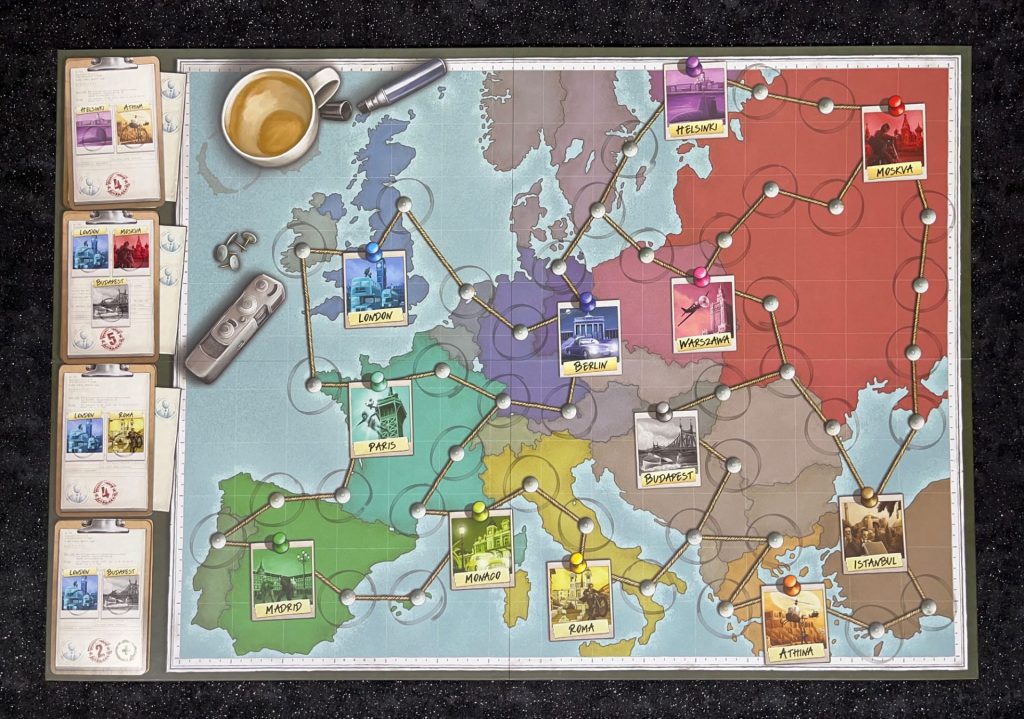
Spy Connection Gameplay
Spy Connection is a relatively simple game, with some interesting choices. On a turn you can perform one of 3 actions.
Taking a New Mission
At the heart of the game is the goal to complete missions. Not only do they earn you points (anywhere from 2 to 8), but the first player to collect 7 missions triggers the end of the game. Making sure you always have at least 1 or 2 mission cards is crucial to your success, as you’ll find out in a moment. However, you can’t have more than 3 mission cards at any one time.
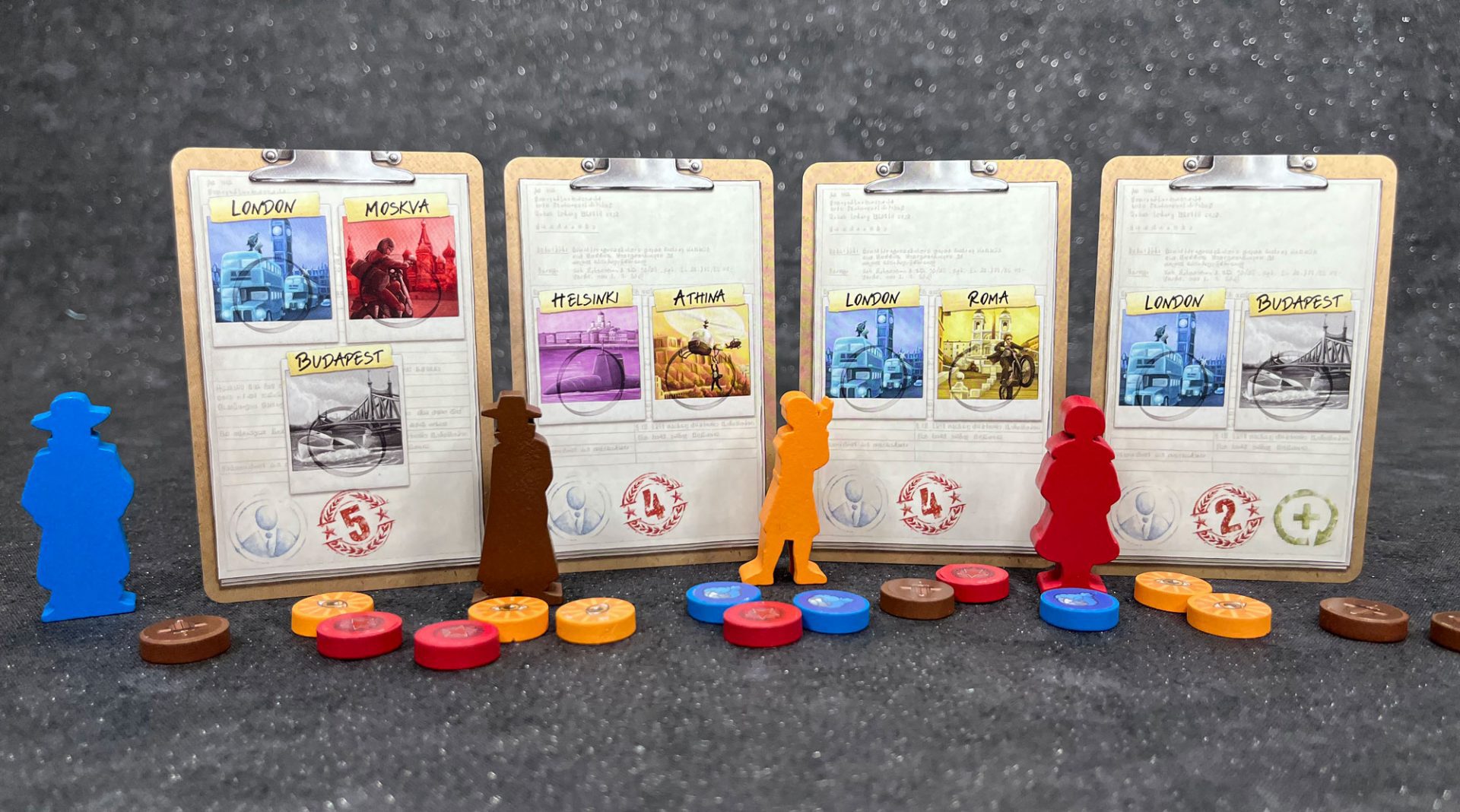
Connect 1 New City, and Move to That City
Building up a network of agents and cities is an important part of Spy Connection. In order to move to a city you must first have a network of supporting agents that connect your current location to the desired destination. Once you’ve placed the agents and connected to the new city, you may move your player piece there. If there are already agents from another player on any of the spaces between you and your destination you must place 2 agents to pass through that space.
Move Your Spy to Another City in Your Network
As a final action you can move to, and stop in, any city which is connected to your current location by a network of agents.
The Role of Agents
Players start with only 15 agents (14 in the advanced game), each agent performing multiple functions. You’ll never have enough resources to do everything you want (isn’t that a typical eurogame?), so careful planning is essential for you to be successful.
When accepting a mission card, you’ll need to set aside a certain number of agents. Those agents are working on that mission and won’t be available for future use until that mission is completed. The number of agents placed on the card is dictated by the mission’s priority on the left side of the board.
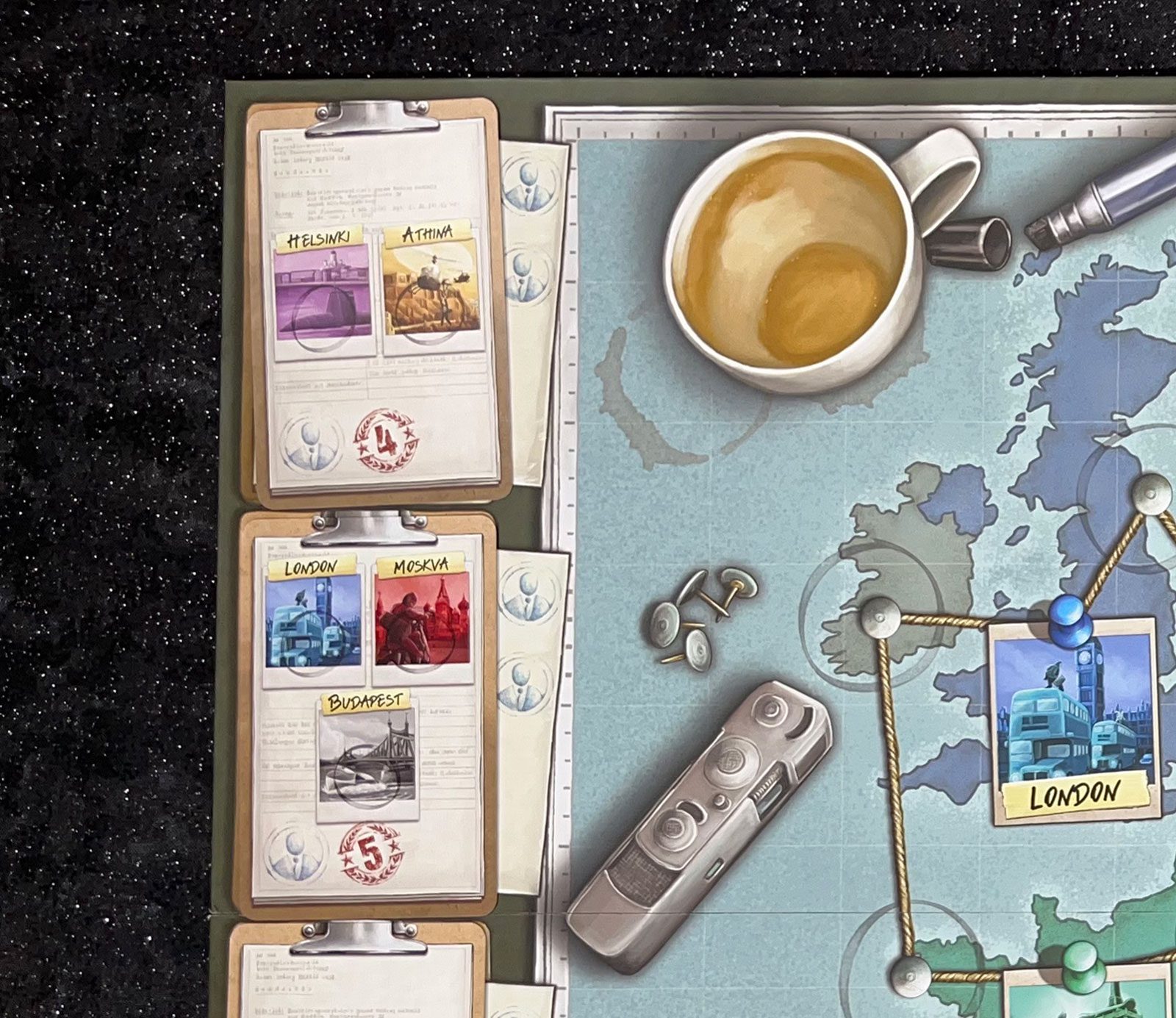
As you travel across the map, you’ll need to send agents ahead of you in order to prepare your travels. Those agents remain on the map until you recall them. But once they’ve been recalled from their current positions, you’ll have to spend a future turn to deploy them again. Two agents are required for any space which has another player’s agent.
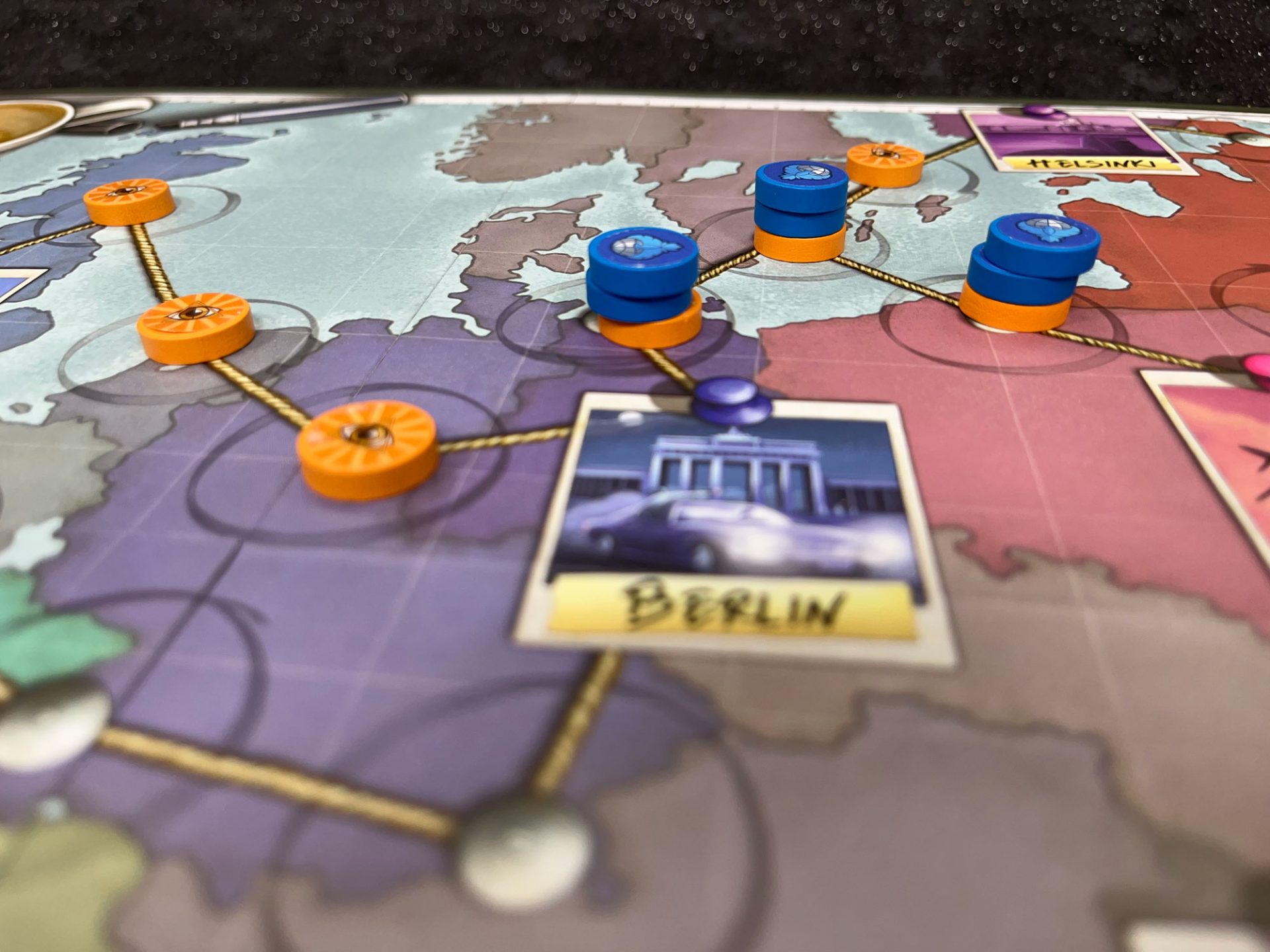
Completing Mission Objectives
Mission objectives completed by traveling to the cities shown on the card. Each mission card features between 2 and 4 cities, and increases in points the more cities are featured. When you stop in a city during your travels, you’ll place one of your agent markers on that city’s space on any card which displays it. Thus, if you have the max number of cards, and every card has Istanbul on it, you’ll place 1 agent on each card, covering the Istanbul space.
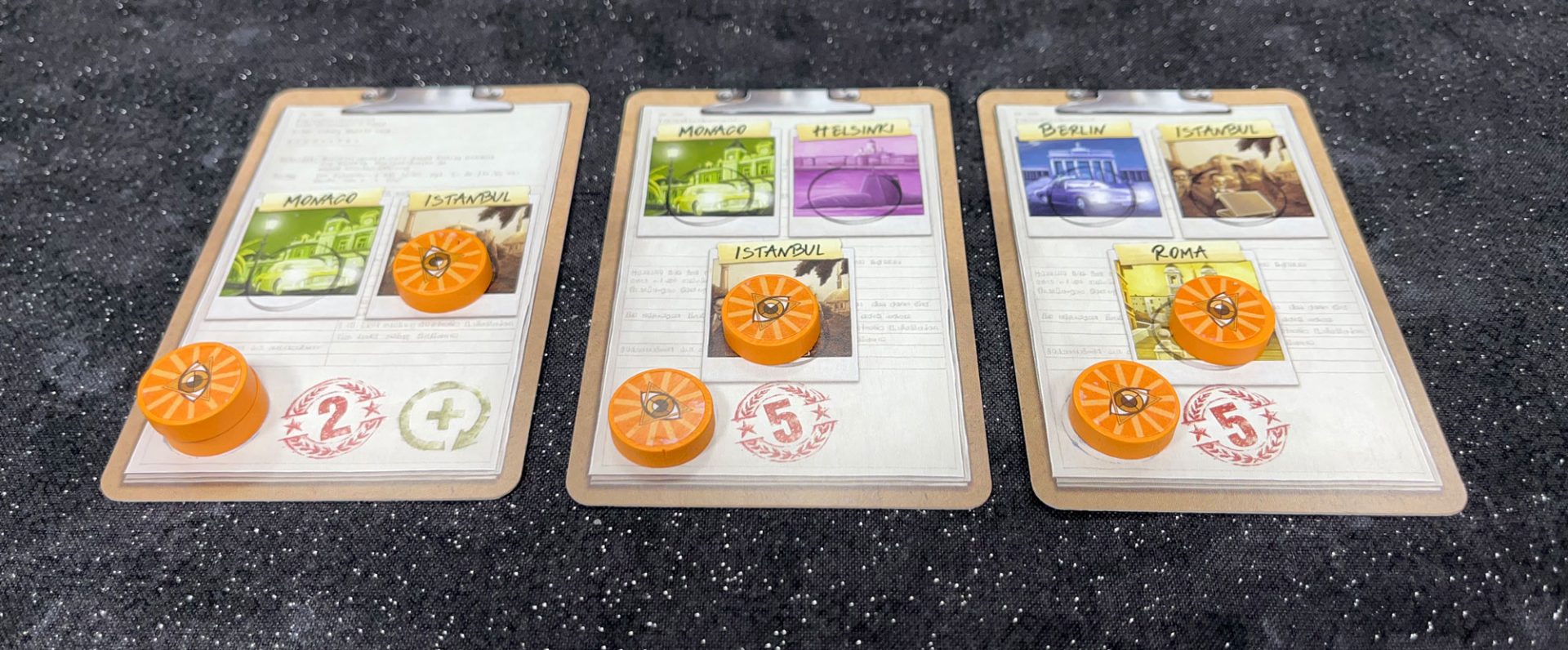
End of the Game
The end of the game is triggered when a player has completed 7 mission cards. You’ll finish the current round, then add up points from completed mission cards along with 1 point for each completed mission objective on incomplete mission cards. The player with the most points is the winner.
Final Thoughts About Spy Connection
As I implied earlier in this review, Spy Connection feels like a classic eurogame. And while some might be turned off by that, I enjoy it. It’s a reminder that games don’t need to have a crazy load of components or intricate rules. They just need a fun, well-executed concept. And that’s what Spy Connection offers.
Players each start the game with a high point value, and high complexity, mission card. This mission card also dictates where on the map the start. As you might expect, very few of the objectives on a single card are near each other, requiring you to travel all over the map in order to complete the mission. Since you’re able to mark off the same city on every one mission of your cards, you should always be looking at the mission list to see if any of the missions have overlapping cities. It might take you longer to move from place to place, but when you do so, you’ll be more likely to complete your missions.
That said, you always need to make sure you balance your agent pool with your short term goals. You might spend 3 agents to pick up a mission card, but that might mean you’re short-handed and will have to continue recalling your agents from their places on the board, thereby wasting a future turn to redeploy them. You also have to keep a close eye on the mission cards themselves. If you pick up a mission card with 4 objectives, that requires 3 agents, that means a single card will have 6 occupied agents. You can always recall agents from the map and from existing completed objectives, but that’s less efficient since you already spent turns placing them.
All in all, Spy Connection is a fun and engaging game with some interesting optimization challenges. Do you try to complete mission cards quickly, or do you try to gang them up and aim for efficiency? Gamers who enjoy complex games might not find much to enjoy here, but Spy Connection is a perfect game for families, or people who just want something a little lighter. And if you enjoy the classic eurogame vibe, then you might want to check out Spy Connection.


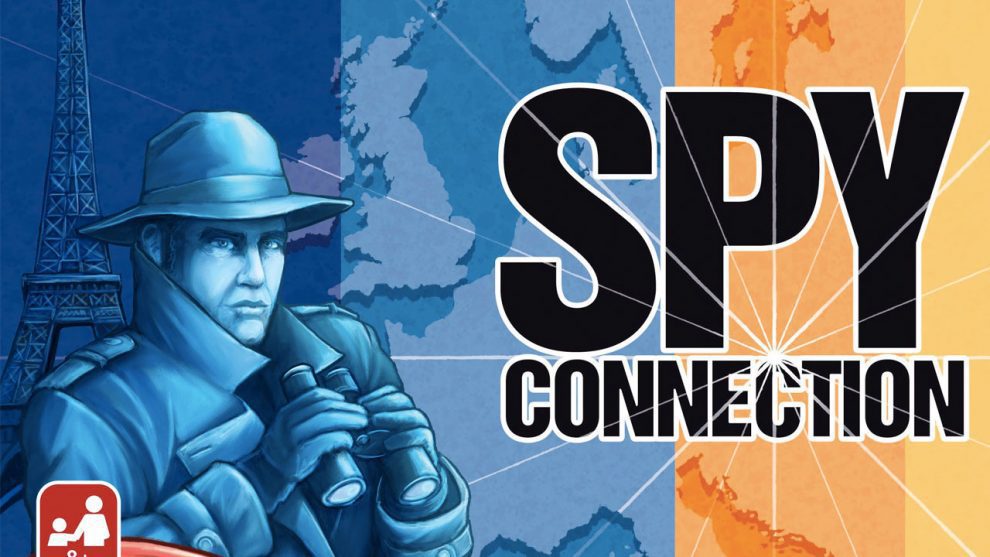









Add Comment